Processing Civil War Papers: Who Gets To Tell The Story?
Posted on May 20, 2024
by Kristen B
As a graduate practicum student majoring in archival studies, I was given the opportunity to digitize and describe documents from the Toledo Lucas County Public Library’s Civil War Papers collection, dated 1861-1865. This collection contains letters, diaries, personal military records, and other miscellaneous papers that have been donated and acquired over the years by the Library’s Local History and Genealogy department. In the time given for my semester I was able to make it through under one-fifth of the records, but within those records was a wealth of information and insight.
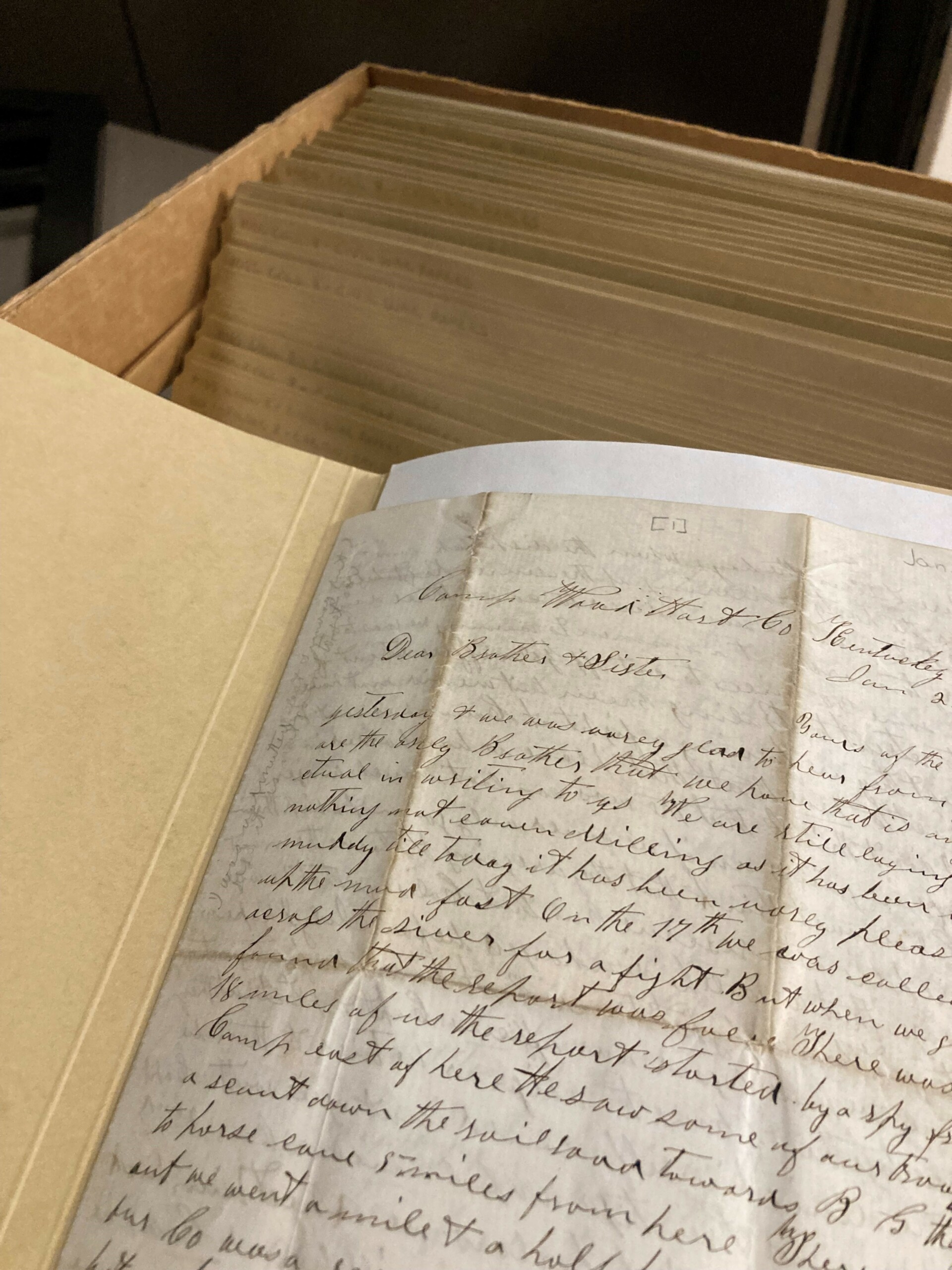
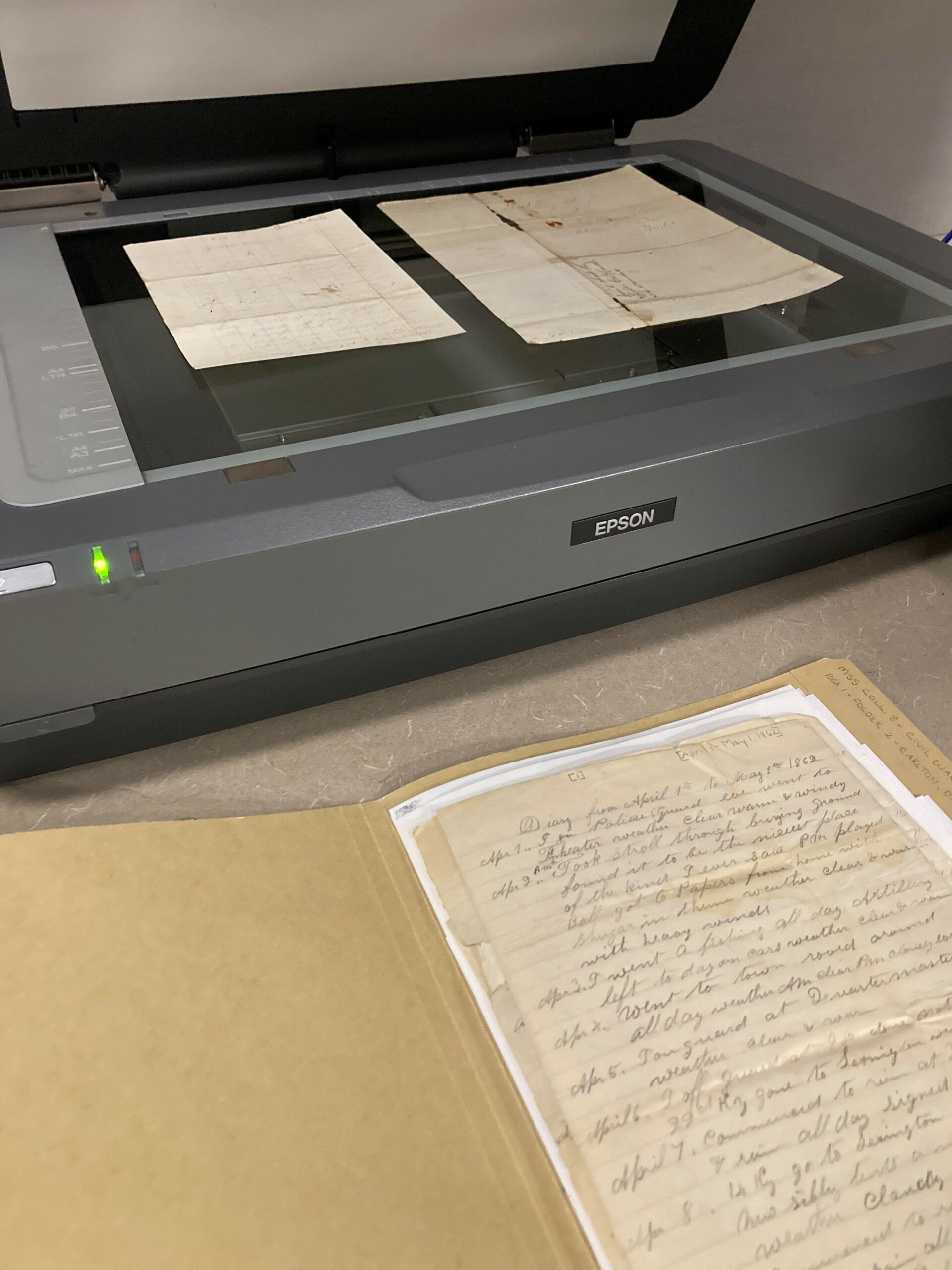
From an archival approach, the description process was one I was most interested in. Descriptions, on a most basic level, help researchers understand whether it would be beneficial to look closer at a resource. This can be at a collection-level or for more specifically, at a record-level. A collection-level description will explain the entirety of the documents together and the general, broad content of the material. A record-level description is specific to the individual letter or diary and contains details about the content within. This concept can be seen as deceivingly simple but, in both past and present, has been an action that has silenced community and individual voices, or uplifted them. I approached the description process of this collection knowing that these personal papers would possibly contain harmful and outdated language and worked with the digitization supervisor on how to approach this within the descriptions. Our goal was to reflect the content within the papers without projecting anything into them or glossing over anything that could be labeled sensitive. With that said, terms that are considered racist and harmful today were labeled as such within the description. The documents are described at a record level as it was also decided that extracting as much information from the letters would be most helpful. I used a spreadsheet to keep track of the letters within the folders and to organize the information that may be considered valuable to research.
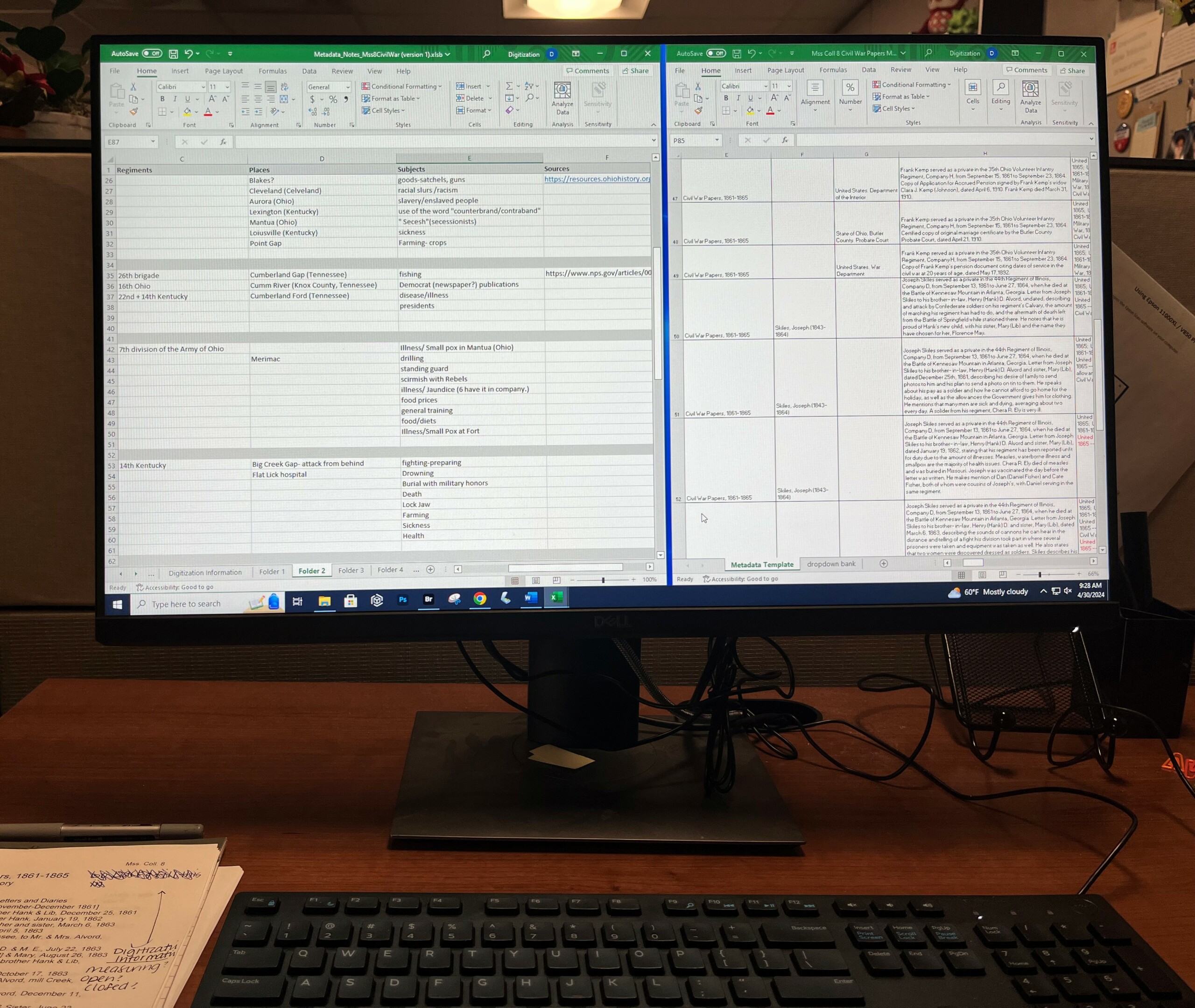
While describing these letters and diary entries the themes of identity and perspective stood out. Several letters show examples of African Americans involved in soldier and regimental duties at the camps, but racist language is used to describe them. It is not stated clearly in the documents I read whether they were soldiers or how they came to be involved in the regiments and it is unclear if they are free or enslaved. These accounts depict no identity to these individuals other than a physical one. Additionally, in the descriptions and this reflection, the term African Americans has been used, however, it should be noted that this term may not be the best and most appropriate. We have no way, within these papers, of knowing how these individuals identified. It is a matter that has no exact answer but should be acknowledged.
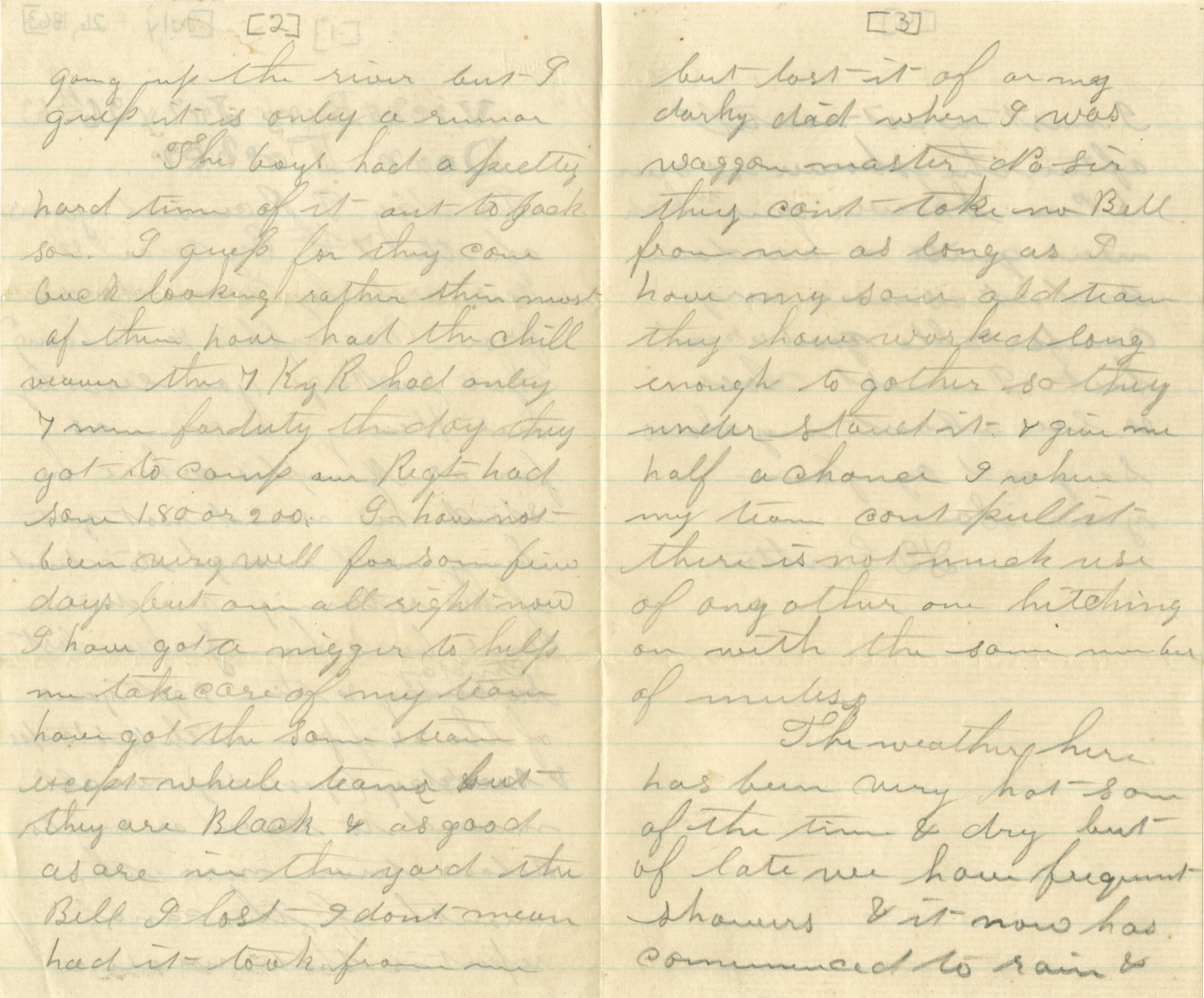
Another example of identity and perspective was found in a letter explaining how two women dressed as soldiers were found out, arrested, and put in the guard house (the camp jail) in March of 1863. The soldier states that these two individuals came up from Nashville and traveled with the Army but were not found out until 5 days prior and will be sent back to Nashville. Other than briefly describing the reactions of soldiers to seeing this, there is no other information. So many assumptions and speculations can come from this situation when reading this account. I had questions of my own such as whether these individuals even identified as women. What reasons did they have to dress as soldiers and participate in the war? What happened to them after Nashville? We will never really know. Given the period, it likely did not occur to the writer that they might identify as anything but female. It presents an ethical dilemma of how to describe situations such as this and the one previously discussed. We only know what the author has shared with us, and that perspective limits the identity of these figures.
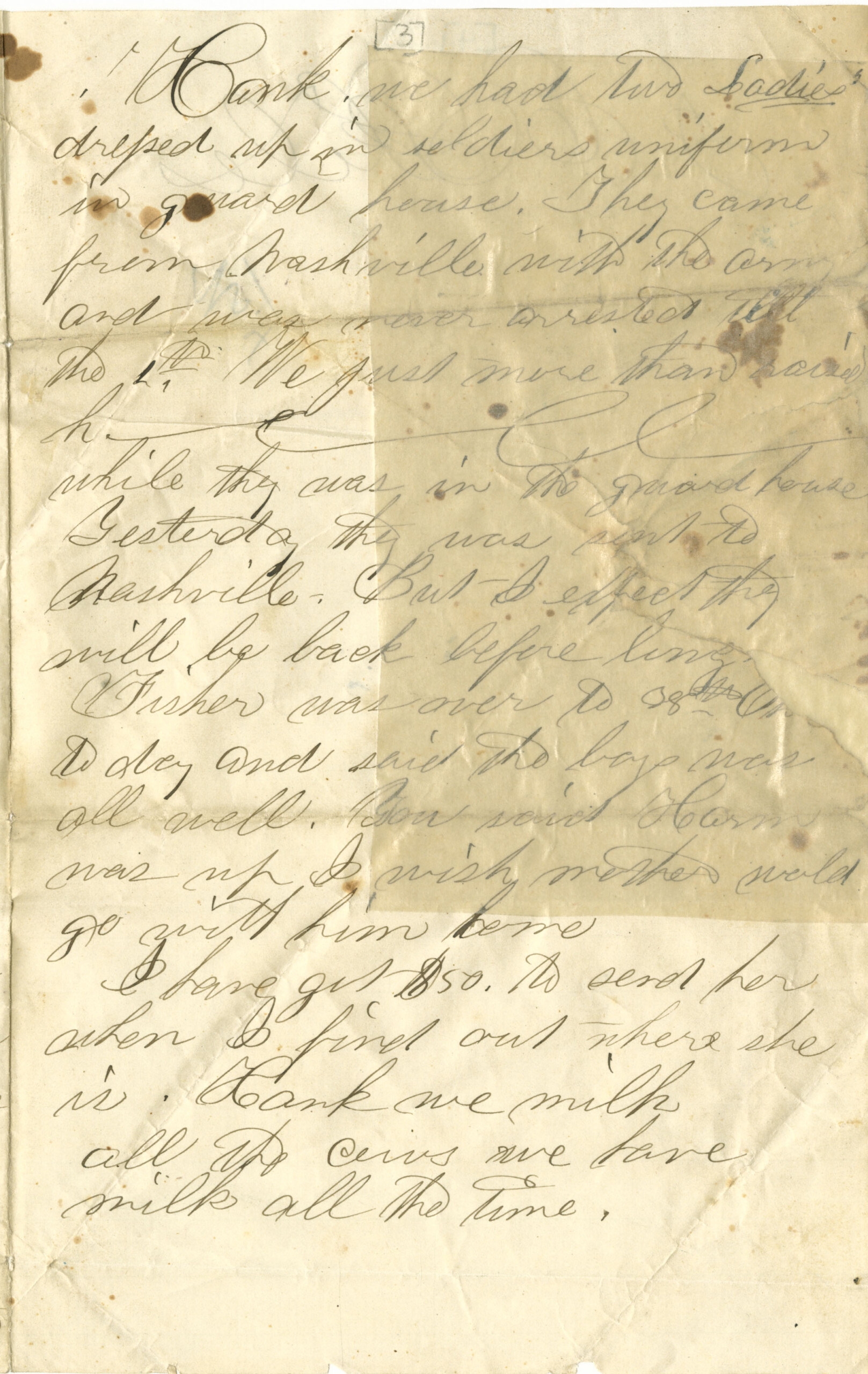
One of the difficulties I found of working with historical records such as these is to not interject my thoughts and assumptions into the description of the material. Another is to be aware of what I am labeling as important enough to include in the description and know that this is also a reflection of my perspective and biases as well. One of the biggest lessons I will take away from this experience is that keeping these in mind throughout the description process can be difficult but is pivotal for respectful archival description. It is also important to remember when reading these accounts that they reflect a singular opinion and single-story perspective. These perspectives have been influenced by that individual’s own experiences and biases. Both examples discussed were written from a white male perspective.
What I learned during this experience will stay with me and I believe I am becoming a more careful and reflective archivist because of it. This collection provides valuable primary resources for research on a variety of levels, and I am grateful to have been a part of the process to make these materials more accessible for public use.
For more information regarding the presence of offensive and outdated language in this collection please read our Sensitive Content Statement.
Did you like this blog post? Keep up to date with all of our posts by subscribing to the Library’s newsletters!
Keep your reading list updated with our book lists. Our staff love to read and they’ll give you the scoop on new tv-series inspired titles, hobbies, educational resources, pop culture, current events, and more!
Looking for more great titles? Get personalized recommendations from our librarians with this simple form.

